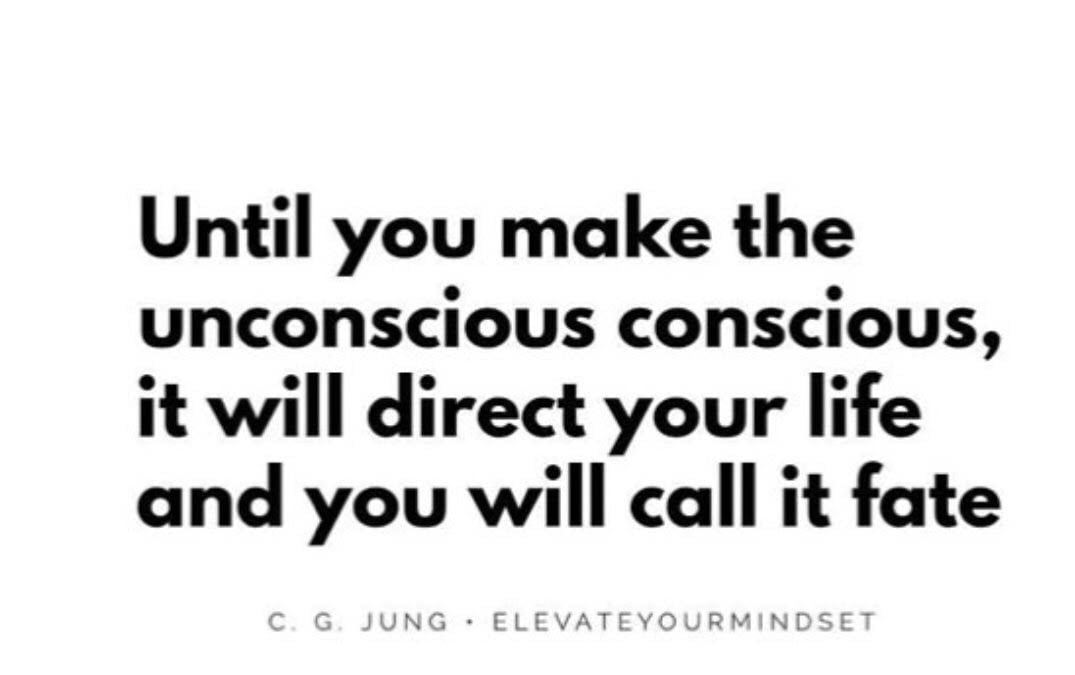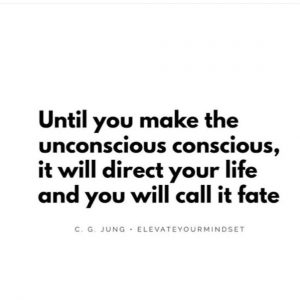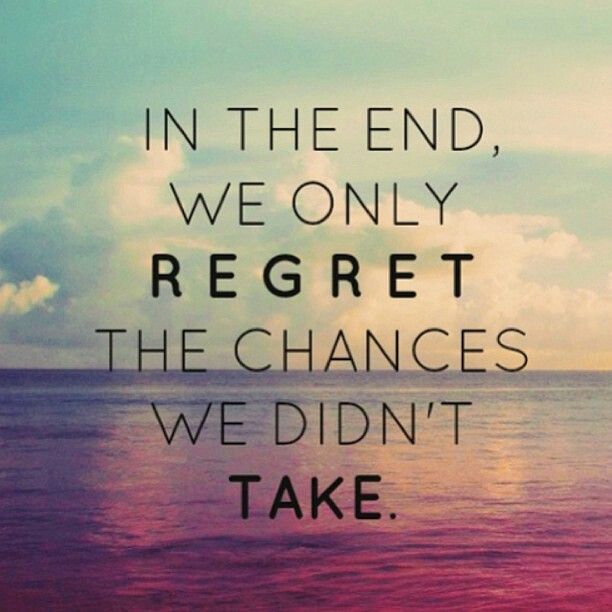
by Rick Davidson | Dec 23, 2018 | Best Practice, Goal Setting, Mindset For Success, No Regrets, Success, Top Agent, Top Producer
As we close out the year, I was reminded of a previous blog post that is well worth posting again. As many of us are thinking about the New Year, resolutions and what’s possible. Here’s a quick question for you to consider:
“Do you prefer the pain of discipline OR the pain of regret?”
Research shows that we regret those things we have not done MORE than we do the things we have done. Can you relate?
What I’ve experienced personally and observed in others is, procrastination blocks us from creating to the fullest the business and life we want. You already know, the main reason we procrastinate is that taking action can cause us a certain amount of “pain, a certain amount of discomfort.”
Coaching clients have shared with me, “I’m avoiding undertaking certain tasks because of the risk of shame, vulnerability or failure. Taking action means we might be making a mistake or we might fail. Let’s face it, it’s easier to not take action and avoid the pain of looking less than perfect. Thus, many of us instinctively retreat to our comfort zone and miss creating our ideal business. Basically, in trying to protect ourselves from failure it’s easier to erect our own barriers to success. Can you relate? If you’ve ever been in this place – as I have – how do you get out?
Psychologist call this a strategy of self-sabotaging. Research shows, that by creating impediments that make success less likely, we protect our sense of self-competence. And believe it or not, we as humans tend to do this more when the stakes are the highest.

So how do we procrastinate less and take action more? Practice… practice taking action faster and more often. Get an accountability partner and join a mastermind group. By taking more small steps that lead to bigger steps you’ll build the “take action muscle.” By creating an accountability partner and mastermind group you’ll have others who can help you discern what is an excuse and what’s not.
Consider these 5 action steps:
1. Remember a goal is NOT a system. A system will produce what a system will produce nothing less nothing more. Example, losing 10 pounds by September 1st is a GOAL. Learning how to change your eating habits is a SYSTEM. See the difference?
2. Make your goal tangible and specific. “Grow my business” sounds great but is also meaningless.”Land five new clients a month” allows you to determine exactly what you need to do to land those clients. Always set a goal that allows you to work backward and create a process designed to achieve it. It’s impossible to know exactly what to do every day when you don’t know exactly what you want to achieve.
3. Make it matter to you! If you want to get in better shape so other people will think you look better at the pool this summer, you’re unlikely to follow through. Ultimately, who cares what other people think?
Yet, if you want to get in better shape because you want to feel better, and feel better about yourself, or to set an example for your kids, or to prove something to yourself…then you’re much more likely to stick with it. Now your goal has meaning–not to your doctor, not to strangers at the pool, but to you.
4. Make it positive. “Stop criticizing other people in meetings” is a great goal, but it’s a negative goal. It’s a lot harder to give up or stop doing something than it is to embrace a new and positive challenge. Example, setting a goal like”stop eating sweets” means you constantly have to choose to avoid temptation and since willpower is often a finite resource, why put yourself in a position of constantly needing to choose?
When you pick positive goals, you’ll be working to become something new rather than avoid being something you no longer wish to be.
5. Focus on the process, the DAILY process. All incredibly successful people I’ve worked with have one thing in common… they set a goal and then focus all their attention on the process necessary to achieve that goal. Sure, the goal is still out there. But what they care about most is what they need to do today–and when they accomplish that, they feel happy about today.
So, I’ll ask again, do you prefer the pain of discipline OR the pain of regret? The choice is yours.
Do you have a question, theme or topic you’d like to see in a future blog? Let me know, until then #WinTheDay and remember what Abraham Lincoln said: “Folks are usually about as happy as they make their minds up to be.”

by andrew | Sep 17, 2018 | Don't Settle, Goal Setting, Life On The Wire, Mindset For Success, No Regrets, Stress, Success
I don’t know about you, but sometimes I get stuck. When you get stuck what do you do? Here’s one idea… to consider:
What will you regret more… doing it or not doing it? Asking yourself this question cuts through the fears, the pros and cons and all that other stuff that clogs the decision-making process. Asking this question can get you out of your head and into your heart, revealing what you truly want. And once you know that, the details sort themselves out. Any testimonials?
Research shows that more people regret things they didn’t do than the things they did, even if things they did turned out badly. After all, with time and effort, you can fix almost any mistake… yet you can’t go back and do the things you dreamed of doing but didn’t. That means you can only think about how today would be different if you had only taken action.
Take a moment and write down that decision you’ve been procrastinating about… the one thing you’ve been thinking about, the one thing you’ve been getting ready to get ready. And ask yourself, “what will I regret more… doing it or not doing it?”
Research shows, we most regret thinking we didn’t reach our full potential. We most regret not becoming the person we feel we could have become…if we only had tried.
I suspect this is the case because it is the one mistake you can never go back and fix.
Yet it is the one mistake we all can stop making today.
Think about this… it’s easy to imagine that superstars in their fields were just born better equipped than the rest of us. When a co-worker loses 20 pounds, or a friend runs a marathon while completing a huge project at work, we assume they have more grit, more willpower, more innate talent, and above all, more motivation to see their goals through.
Yet that’s not actually true. Inc.com columnist Jeff Haden proves “motivation” as we know it is a myth. Motivation isn’t the special sauce that we require at the beginning of any major change. In fact, motivation is a result of the process, not a cause. Understanding this will change the way you approach any obstacle or a big goal.
Read more about it here, The Motivation Myth
What will you regret more… doing it or not doing it?
#WinTheDay

by andrew | Jul 23, 2018 | Appointment Setting, Best Practice, Goal Setting, Mindset For Success, Real Estate, Success, Sucess Goals, Top Agent, Top Producer
This week I had requests to write about, “how to have more joy and fun in my business” and “how to avoid procrastination in my business.” Both excellent topics. I’ll write more about fun and joy in business on another post until then I’m reminded of that famous Abraham Lincoln quote: “Folks are usually about as happy as they make their minds up to be.”
Do you prefer the pain of discipline OR the pain of regret? Research shows that we regret those things we have not done MORE than we do the things we have done. Can you relate?
What I’ve experienced personally and observed in others is, procrastination blocks us from creating to the fullest the business and life we want. You already know, the main reason we procrastinate is that taking action will cause us a certain amount of pain, a certain amount of discomfort.
Coaching clients have shared with me, “I’m avoiding undertaking certain tasks because of the risk of shame, vulnerability or failure. Taking action means we might be making a mistake or we might fail. Let’s face it, it’s easier to not take action and avoid the pain of looking less than perfect. Thus, many of us instinctively retreat to our comfort zone and miss creating our ideal business. Basically, in trying to protect ourselves from failure it’s easier to erect our own barriers to success. Can you relate? If you’ve ever been in this place – as I have – how do you
get out?
Psychologist calls this a strategy of self-sabotaging. Research shows, that by creating impediments that make success less likely, we protect our sense of self-competence. And believe it or not, we as humans tend to do this more when the stakes are the highest.

So how do we procrastinate less and take action more? Practice, get an accountability partner or join a mastermind group. By taking more small steps that lead to bigger steps you’ll build the “take action muscle.” By creating an accountability partner or mastermind group you’ll have others who can help you discern what is an excuse and what’s not. And consider these 5 action steps:
1. Remember a goal is NOT a system. A system will produce what a system will produce nothing less nothing more. Example, losing 10 pounds by September 1st is a GOAL. Learning how to change your eating habits is a SYSTEM. See the difference?
2. Make your goal tangible and specific. “Grow my business” sounds great but is also meaningless.”Land five new clients a month” allows you to determine exactly what you need to do to land those clients. Always set a goal that allows you to work backward and create a process designed to achieve it. It’s impossible to know exactly what to do every day when you don’t know exactly what you want to achieve.
3. Make it matter to you! If you want to get in better shape so other people will think you look better at the pool this summer, you’re unlikely to follow through. Ultimately, who cares what other people think?
Yet, if you want to get in better shape because you want to feel better, and feel better about yourself, or to set an example for your kids, or to prove something to yourself…then you’re much more likely to stick with it. Now your goal has meaning–not to your doctor, not to strangers at the pool, but to you.
4. Make it positive. “Stop criticizing other people in meetings” is a great goal, but it’s a negative goal. It’s a lot harder to give up or stop doing something than it is to embrace a new and positive challenge. Example, setting a goal like”stop eating sweets” means you constantly have to choose to avoid temptation and since willpower is often a finite resource, why put yourself in a position of constantly needing to choose?
When you pick positive goals, you’ll be working to become something new rather than avoid being something you no longer wish to be.
5. Focus on the process, the DAILY process. All incredibly successful people I’ve worked with have one thing in common… they set a goal and then focus all their attention on the process necessary to achieve that goal. Sure, the goal is still out there. But what they care about most is what they need to do today–and when they accomplish that, they feel happy about today.
So, I’ll ask again, do you prefer the pain of discipline OR the pain of regret? The choice is yours.
Do you have a question, theme or topic you’d like to see in a future blog? Let me know, until then #WinTheDay and remember what Abraham Lincoln said: “Folks are usually about as happy as they make their minds up to be.”




